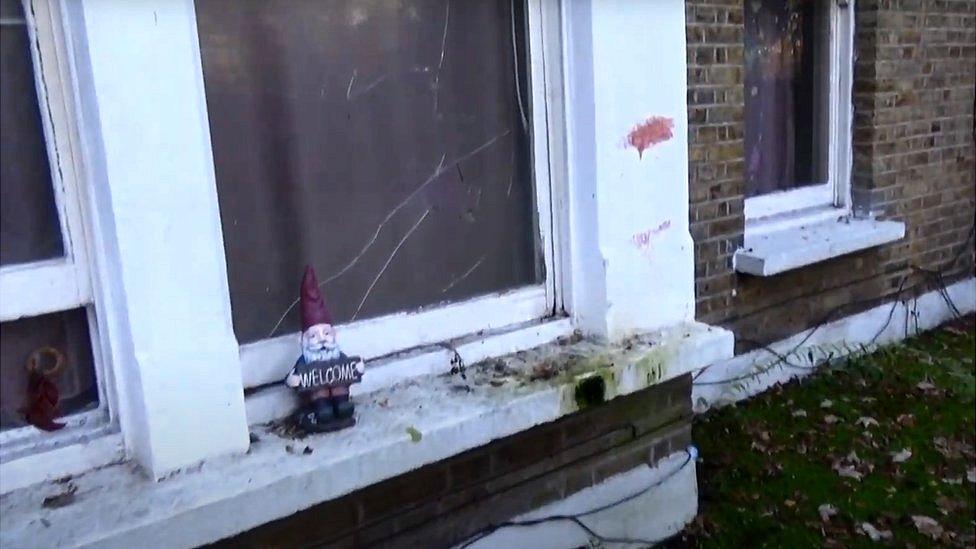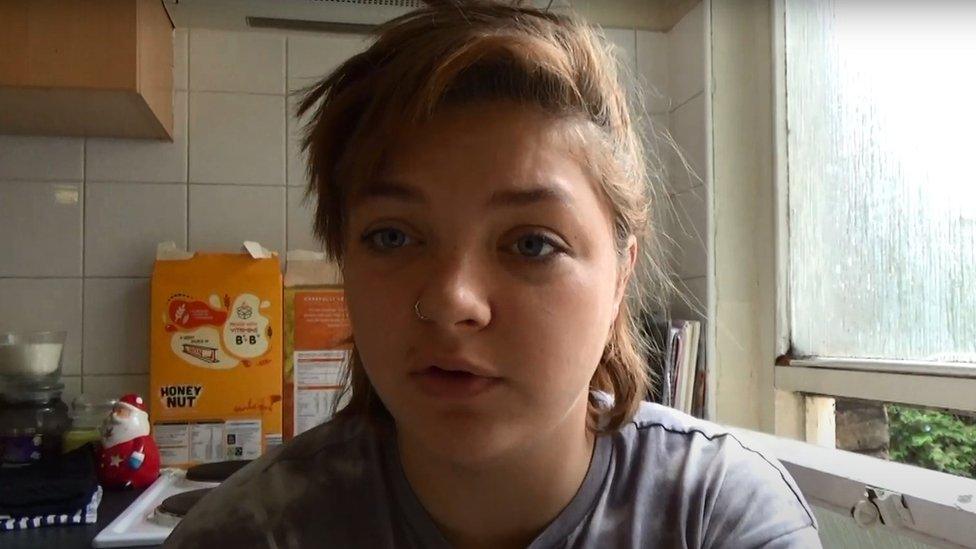More families 'trapped in temporary accommodation' in England
- Published

Temporary accommodation is not always suitable for families
The number of people in temporary accommodation in England is at its highest level in 14 years, says a new report by charity Shelter.
It jumped by 6,000 in the first three months of the pandemic and now stands at 253,000, according to Shelter's analysis of government data.
Temporary accommodation offered by councils ranges from bed and breakfasts to self-contained flats.
The government says finding people a permanent home is a "priority".
It suggests the increase in people living in temporary accommodation this year may be down to the "everyone in" scheme, which aimed to get rough sleepers off the streets and out of hostels at the start of the pandemic.
Local councils have placed more than 15,000 homeless people in emergency accommodation, such as hotels, student flats and bed and breakfasts, since March.
Councils are now attempting to find permanent homes for many of them, with the aid of a £266m pot of money known as the Next Steps Accommodation Programme.
But Shelter says a shortage of social housing means families made homeless during the pandemic have become "trapped" in often cramped, dirty and insecure accommodation, with little hope of a permanent home.

'I don't want anybody to live like this'

Jenny was placed in a tiny self-contained flat in South West London, with her two children, aged one and three, after they became homeless four months ago.
She lives in fear of the other residents. she says.
"It is awful. They are trying to get into here all the time. They keep nicking stuff from us. There are needles all over the place and broken glass. You can smell the drugs in the rooms. At night you can't sleep. I'm worried they will come and take my children."
The family had to move out of their first temporary flat, as it was infested with bed bugs, but their latest accommodation is not much of an improvement, says Jenny, and she is worried about the impact it is having on her children.
She is trying to make the best of if for now.
"I have bought presents for the kids. I am going to try and make it Christmassy for them. I have got a little £2 tree."
But she was recently told it could be up to three years before the family is offered a permanent home.
"I don't want anybody to live like this," she says. "It's not fair."

Shelter's chief executive Polly Neate said: "Over a quarter of a million people - half of them children - are homeless and stuck in temporary accommodation. This should shame us all.
"With this deadly virus on the loose, 2020 has taught us the value of a safe home like never before. But too many are going without, because of the chronic lack of social homes."
According to Shelter's analysis, 68% of all homeless people living in temporary accommodation are in London, which amounts to 1 in 52 of the city's population.
Outside of London, Luton has the highest rate of people in temporary accommodation (1 in 55), followed by Brighton and Hove (1 in 78), Manchester (1 in 93) and Birmingham (1 in 94).
A spokesperson for the Ministry of Housing, Communities and Local Government said: "Reducing the number of households in temporary accommodation is a priority for this government. This is why we are investing over £750m to tackle homelessness and rough sleeping next year.
"Our Homelessness Reduction Act has helped over 270,000 households who were homeless or at risk of homelessness into more permanent accommodation since it came into force in 2018."
But Labour's shadow housing secretary, Thangam Debbonaire, said homelessness had doubled under the Conservatives and "their irresponsible mismanagement of the Covid crisis threatens to make this even worse, with unemployment expected to spike next year".
"Too many people will spend this Christmas without a safe and stable home," she added. "For families having to live with no kitchen and little space this will be devastating."